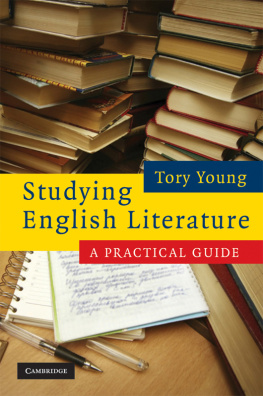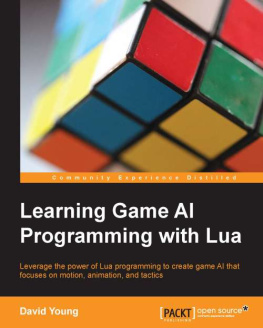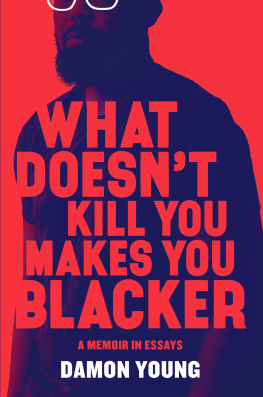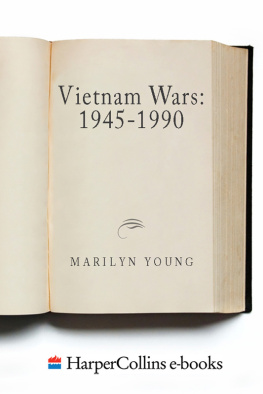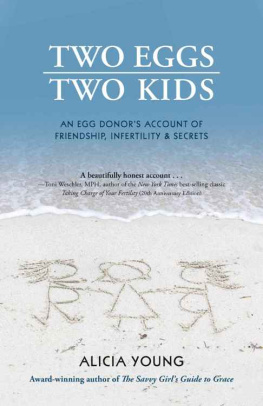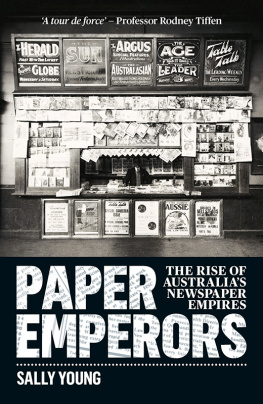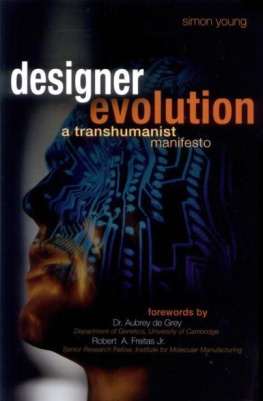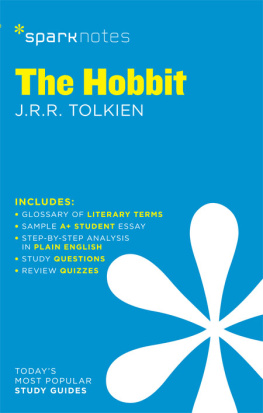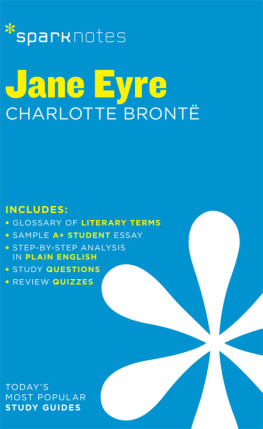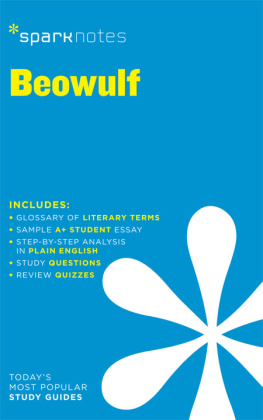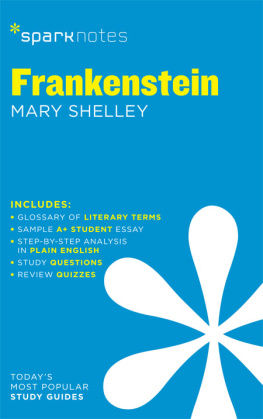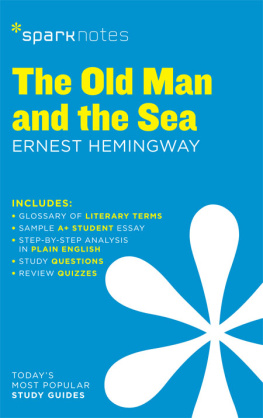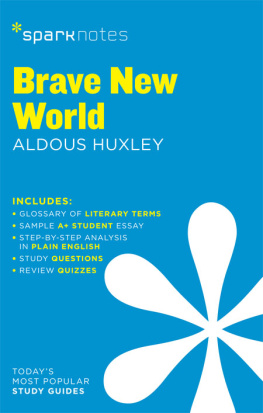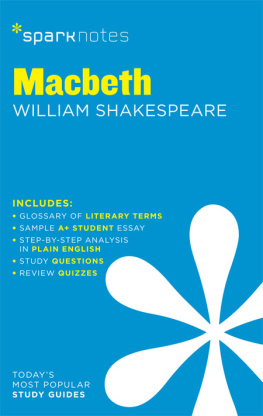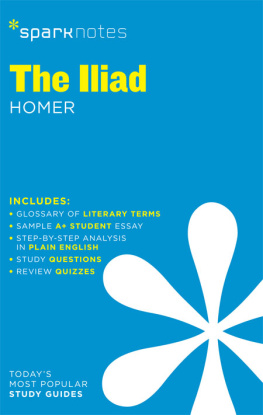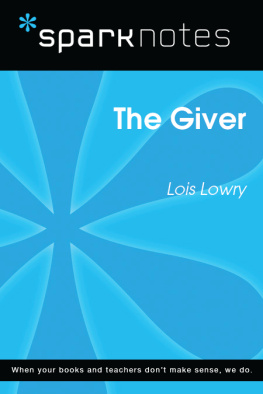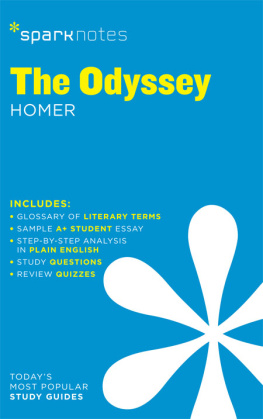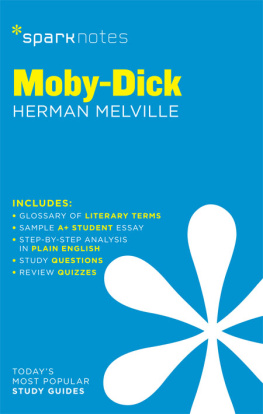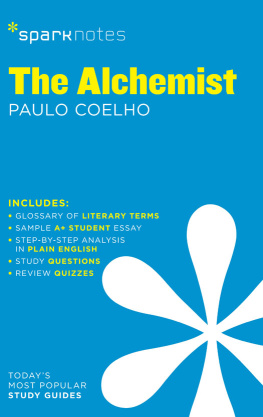Studying English Literature
This practical guide provides students beginning to study literature at university with the reading and writing skills needed to make the most of their degree. It begins by explaining the history of the subject and of literary criticism in an easily digestible form. The book answers the key questions every first-year English student wants to ask: how to approach assignments and reading lists, how to select the best online resources, how to make effective notes to retain and use what youve read, how to write an essay, how to find something to say when youre stuck, and how to construct your argument. It contains key tips on grammar, style and references, and examples of real student essays, with explanations of what works and what doesnt. Both for those beginning English degrees and for those considering studying English, this book will be an essential purchase.
Tory Young is Senior Lecturer in English at Anglia Ruskin University, Cambridge.
Studying English Literature
A Practical Guide
TORY YOUNG


University Printing House, Cambridge CB2 8BS, United Kingdom
Published in the United States of America by Cambridge University Press, New York
Cambridge University Press is part of the University of Cambridge.
It furthers the Universitys mission by disseminating knowledge in the pursuit of education, learning and research at the highest international levels of excellence.
www.cambridge.org
Information on this title: www.cambridge.org/9780521869812
Tory Young 2008
This publication is in copyright. Subject to statutory exception and to the provisions of relevant collective licensing agreements, no reproduction of any part may take place without the written permission of Cambridge University Press.
First published 2008
7th printing 2013
Printed in the United Kindom by Clays, St Ives, plc
A catalogue record for this publication is available from the British Library
ISBN 978-0-521-86981-2 Hardback
ISBN 978-0-521-69014-0 Paperback
Cambridge University Press has no responsibility for the persistence or accuracy of URLs for external or third-party internet websites referred to in this publication, and does not guarantee that any content on such websites is, or will remain, accurate or appropriate.
For Mark
Contents
Acknowledgements
Since I began to teach academic writing, I have been privileged to meet and learn from some of the most inspiring innovators in the field. I am particularly grateful to the following: Rebecca Stott and Simon Avery for allowing me to work with them on Anglia Ruskin Universitys SpeakWrite Project; Catherine Maxwell for introducing me to Thinking Writing at Queen Mary, University of London, and Sally Mitchell and Alan Evison themselves for allowing me to participate in the events of this programme; all the staff of the John S. Knight Institute for Writing in the Disciplines, but in particular Jonathan Monroe and Katy Gottschalk, whose influence during the two summers I spent at the Cornell Consortium for Writing in the Disciplines provoked a decisive change in my thinking; Lisa Ganobcsik-Williams for her thorough knowledge of the ways that writing is taught on both sides of the Atlantic and her generosity in sharing it with me: both she and David Morley have offered intellectual and practical support for my work and this project. As a lecturer in English Literature, Im happy to have worked among dedicated colleagues at Anglia Ruskin University Katy Price, Catherine Silverstone, Alison Ainley, Rick Allen, Nora Crook and Mary Joannou have been especially supportive and to teach highly engaged and engaging students such as Tracey Tingey and Alex Hobbs, who have kindly allowed me to reproduce their essays. My friends and colleagues at the London Modernism Seminar Anna Snaith and Maggie Humm helpfully provided information about writing and grading practices in their respective universities. In New York, Mark Macbeth was a superlative host and guide to the CCCC and the city when the conference was held there. A particularly big thank you is due to Rebecca Beasley and Markman Ellis who put me up in style when I was working in the British Library. I am thankful to the readers of the initial proposal and final manuscript of Studying English Literature, whose suggestions were invaluable, to Margaret Berrill, the copy-editor, for important suggestions and corrections, and to Cambridge University Press for their continued patience in the gestation of the project. Since I started working on it, I am thrilled to have become daughter-in-law of Jo Anderson and Bill Currie, whose conversations about literature and language I relish. As ever, I thank Robert, Jane and Edward Young, and Miriam Lynn for their love and support, but the beginning, middle and end of the story lies with Mark Currie, to whom I dedicate this book.
Chapter 1
Introduction
1.1 What this book is about
This is a book for literature students. It seeks to answer some basic questions about the role of literature in society, the nature of literature as an academic subject, and the relationship between reading within and outside the university. It intends to provoke you into reconsidering the role of literature in your life, the ways in which you have read stories, and the ways in which they have shaped you. Above all, through an examination of these issues, it seeks to improve your writing and your reading. The process begins with a series of reflections on the reciprocity of the relationship between writing and reading, and with some ideas about the value, in history and now, of reading and writing to powerful social institutions such as education, government and the media.
Why have you chosen to study literature? There are of course many possible answers to this question, but it seems likely that any answer would refer in some way to reading or writing. I would hazard a guess that it is your passion for reading, rather than a confidence in your ability as a critical writer, that has determined your choice. Do you consider yourself to be good at writing? What would it mean to be a good reader? And why do we frequently question our abilities as writers, but not as readers?
I ask these questions to draw attention to a significant premise of Studying English Literature. Critical writing does not exist independently in isolation from other facets of literature and literary study such as reading, oral argument, silent thought processes or creative writing. The main aim of this book is to improve your reading, writing and thinking about literature. Inevitably this will involve some study of what have been termed the technicalities or mechanics of writing: grammar, register, generic conventions and disciplinary guidelines (see especially : Sentences and 6: References). However, to focus entirely upon these mechanical aspects would be not only dull and prescriptive, but it might also suggest a narrow formula for good writing, or that there is only one way to construct an essay, or that this formula is disconnected from what you actually want to say. This book stresses the importance of actually having something to say it returns argument and substance back to the heart of effective writing. General guides to essay writing that focus primarily on structure can obscure the real obstacles to effective writing and can fail to recognise the contexts that shape and determine your writing, the way that you think about writing, and the things that you are writing about. This book is concerned with the writing that you are going to undertake while studying literature at university, but it will not forget that this takes place in the wider context of who you are in the world. We will examine the nature of writing in the academic context and the particular subject in the following chapters but, to begin with, I want to invite you to consider your own reading and writing, and to try and uncover your own ingrained beliefs and anxieties. We can begin to understand our relationship to academic writing through becoming conscious of the role writing has played in our lives to date, and of our learning experiences.
Next page
